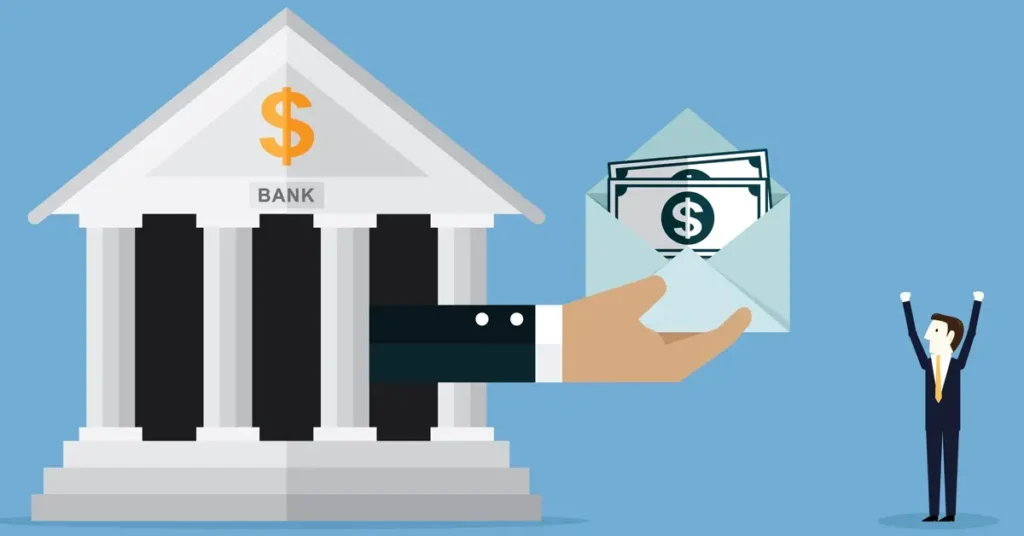Have you ever looked at your bank statement and seen a charge from FID BKG SVC LLC Moneyline and wondered, “What is that?” It’s not uncommon to feel alarmed when an unfamiliar transaction shows up, especially when the wording seems cryptic. Many people panic, assuming it might be a fraudulent charge.
However, the truth is that this charge usually points to a legitimate transaction, often related to a Fidelity account. In this comprehensive guide, we’ll explain everything you need to know about FID BKG SVC LLC Moneyline, help you identify legitimate charges, and show you how to avoid potential scams associated with similar transactions.
What is FID BKG SVC LLC Moneyline?
At its core, FID BKG SVC LLC Moneyline is a charge that you might see on your bank or credit card statement that is linked to Fidelity Brokerage Services LLC, a well-known financial institution. Fidelity provides a range of services, including brokerage services, retirement planning, and asset management. The charge is often the result of a financial transaction, such as a deposit, withdrawal, or fee related to your Fidelity brokerage account.

Common Transactions Associated with FID BKG SVC LLC Moneyline
Here are some of the most common transactions that can lead to this charge:
- Brokerage fees: If you’re using Fidelity to manage investments, you may incur brokerage fees for transactions, which can appear on your statement under FID BKG SVC LLC Moneyline.
- Fund transfers: Transfers between Fidelity accounts or to/from external bank accounts can result in a FID BKG SVC LLC Moneyline charge.
- Dividend payments: Fidelity manages investment accounts that may periodically pay dividends. These transactions can also show up under this charge.
- Direct deposits: For individuals with Fidelity accounts, a direct deposit (e.g., paycheck or pension) might display this charge on the statement.
Why You Might See This Charge?
If you have any account with Fidelity, such as a brokerage account or retirement account, you might see this charge when a transaction is processed. This could range from a FID BKG SVC LLC Moneyline deposit or a direct deposit from Fidelity, or even an ACH (Automated Clearing House) transfer linked to your account. Fidelity Brokerage Services LLC is a highly reputable company, so in most cases, this charge is perfectly legitimate.
Is FID BKG SVC LLC Moneyline a Scam?
It’s easy to assume that any unfamiliar charge is a scam. However, when it comes to FID BKG SVC LLC Moneyline, this is not usually the case. The vast majority of charges that appear under this name are legitimate transactions tied to your Fidelity brokerage account.
Why It’s Not a Scam FID BKG SVC LLC?
FID BKG SVC LLC Moneyline is a recognizable label tied to Fidelity Investments Brokerage Service. This means that, in general, if you didn’t initiate a transaction with Fidelity, the charge could be suspicious. But if you have an active Fidelity account, chances are, the charge is just part of your normal financial activity.
Important Note: Scammers sometimes use names and logos that resemble legitimate financial institutions, so it’s crucial to always verify unfamiliar transactions before jumping to conclusions.
How to Identify and Verify Legitimate Charges?
If you see FID BKG SVC LLC Moneyline or a similar transaction on your statement, here are a few simple steps to help you verify whether the charge is legitimate:
Step 1: Access Your Fidelity Account
Log into your Fidelity brokerage account and check for any recent transactions. Look for deposits, fees, or transfers that could correlate with the charge showing up on your bank statement. For example:
- FID BKG SVC LLC Moneyline Deposit could refer to a direct deposit from your Fidelity account.
- FID BKG SVC LLC Moneyline ACH could be an ACH transfer between your Fidelity brokerage account and your external bank account.
By reviewing your Fidelity brokerage account transaction history, you can easily match the charge with a recent activity or deposit.
Step 2: Contact Fidelity Support
If you can’t find a corresponding transaction or you’re still unsure about the charge, don’t hesitate to contact Fidelity customer service. They can provide you with details about the charge, including the date. The nature of the transaction, and whether it matches any of your recent activities.
Here’s how you can contact Fidelity:
- Fidelity Brokerage Services Phone Number: You can reach customer support through their official support number.
- Fidelity Brokerage Services Website: Use their online support features to initiate a chat or email inquiry.
What to Do if You Suspect Fraud FID BKG SVC LLC?

If you’ve reviewed your Fidelity account and contacted their support but still believe the charge is suspicious, here are the steps to take:
Step 1: Contact Your Bank or Credit Card Company
Report the charge to your bank or credit card issuer. They may be able to provide additional details about the transaction and, in some cases, help you dispute it.
Step 2: Dispute the Charge
If you suspect the charge is fraudulent, you have the option to dispute the charge with your bank or credit card company. Be prepared to provide details such as:
- The date of the transaction
- The amount charged
- Any relevant communication or transaction history from Fidelity brokerage services that shows the charge is legitimate
Step 3: Freeze Your Account
As a precautionary step, you might want to temporarily freeze your bank account or credit cards to prevent further unauthorized charges while the situation is being resolved.
How to Avoid Falling for Financial Scams?
While FID BKG SVC LLC Moneyline itself is rarely a scam, other types of financial scams do exist. Here are some steps you can take to protect yourself from fraudulent activities:
Tip 1: Regularly Monitor Your Bank Statements
Stay vigilant by reviewing your bank and credit card statements frequently. If you see a FID BKG SVC LLC Moneyline PPD (Prearranged Payment and Deposits) charge and didn’t make the transaction, it’s worth investigating further.
Tip 2: Be Wary of Phishing Attempts
Phishing scams often impersonate trusted financial institutions like Fidelity in order to steal your personal information. If you receive unsolicited emails, phone calls, or text messages asking for sensitive details, be cautious. Always contact the institution directly through their verified channels.
Tip 3: Use Strong, Unique Passwords
To secure your Fidelity account, use strong, unique passwords that aren’t easily guessable. Consider using a password manager to store your credentials securely.
Proactive Steps to Avoid Future Unauthorized Charges

Even though FID BKG SVC LLC Moneyline charges are typically legitimate, it’s essential to stay proactive in safeguarding your financial transactions:
Step 1: Set Up Alerts
Most financial institutions, including Fidelity, offer account alerts for transactions. You can set up text or email notifications for activities like deposits, withdrawals, or transfers. This can help you catch any suspicious charges early on.
Step 2: Consider Identity Theft Protection
Investing in identity theft protection services can provide an added layer of security, especially if you’re concerned about unauthorized financial activities.
Stay Informed: Recognizing Financial Scams
Case Study: In 2023, a Fidelity brokerage customer reported seeing an unfamiliar FID BKG SVC LLC Moneyline deposit on their statement. After contacting Fidelity, they discovered that it was a legitimate dividend payment from their investment portfolio. However, this case highlights the importance of staying informed and verifying unfamiliar charges promptly.
Here are some common types of scams you should be aware of:
- Phishing Emails: Fraudsters pretending to be Fidelity or other trusted institutions asking for personal details.
- Impersonation Scams: Scammers posing as customer support representatives and asking you to transfer money or share your account credentials.
Final Thought
FID BKG SVC LLC Moneyline charges are usually not something to worry about if you have an active Fidelity brokerage account. Understanding what these charges represent such as brokerage fees, deposits, or transfers can help you stay on top of your finances and avoid unnecessary panic. If you’re ever unsure, always verify the charge through your Fidelity account or reach out to customer service.
By following best practices like monitoring your statements, using strong passwords, and staying vigilant about potential scams, you can ensure that your financial information remains secure.
Frequently Asked Questions
What should I do if I see an unfamiliar charge from FID BKG SVC LLC Moneyline?
Check your Fidelity account for any recent transactions that may correspond to the charge. If you can’t find it, contact Fidelity for clarification.
Is FID BKG SVC LLC Moneyline a scam?
No, in most cases, it’s a legitimate charge related to your Fidelity account, such as fees, deposits, or transfers.
How can I protect myself from financial scams?
Regularly monitor your bank statements, set up alerts, and use strong passwords for your Fidelity account.
What is FID BKG SVC LLC?
This is refers to Fidelity Brokerage Services LLC, a financial services firm that offers investment management, brokerage, and retirement services.
Is Fidelity Brokerage Services LLC the same as Fidelity Investments?
Yes, Fidelity Brokerage Services LLC is a subsidiary of Fidelity Investments, specializing in brokerage and investment services.
What is Fidelity Moneyline?
Fidelity Moneyline refers to a service that facilitates transactions, deposits, or transfers related to Fidelity accounts, such as brokerage or retirement accounts.
What does Fidelity Company do?
Fidelity provides a range of financial services including investment management, brokerage services, retirement planning, and asset management for individual investors and institutions.
What bank owns Fidelity?
Fidelity is owned by Fidelity Investments, a private financial services company, and is not a bank itself.
What is Fidelity used for?
Fidelity is used for managing investments, retirement accounts, and providing brokerage services, enabling individuals and institutions to invest in stocks, bonds, and other assets.
Is Fidelity a bank account?
No, Fidelity is not a bank, but it offers financial services like brokerage accounts, retirement plans, and cash management accounts.
What is Fidelity most known for?
Fidelity is most known for its comprehensive investment services, including brokerage, retirement accounts, and wealth management.
What does a Fidelity agent do?
A Fidelity agent assists clients with managing their investments, providing financial advice, and helping with account transactions or retirement planning.
Read This Article: MyFastBroker Trading Platforms: Ultimate Guide and Review